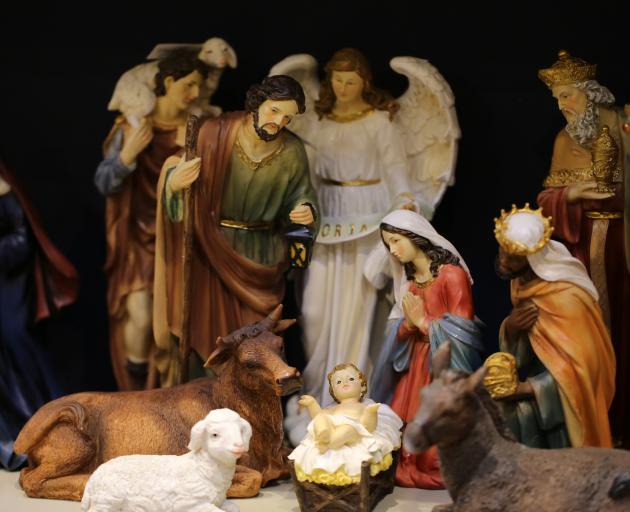
Christian faith makes astonishing claims. Indeed, one New Testament writer refers to its central claim as "foolish." See 1 Corinthians 1:20.
The principal claim of Christian faith is that God became human, in the man Jesus Christ. God was making all things right in this first century Jewish rabbi. But this is no ordinary rabbi or sage. He is, rather, God’s beloved Son, truly God and truly human, the one through whom and for whom all things are made.
This extraordinary message is as relevant today as it was two thousand years ago. To be sure, there are some who scoff at it. In so doing, however, they go against the grain of the universe.
Human beings are created for God, for a life of intimacy and friendship with God, the source of all that is good, beautiful, and true. Though in our hearts of hearts we know this to be true, many of us resist it. We prefer to do things are our way, be masters and makers of our own destiny.
This also is foolishness. The great gift of Christmas is that God puts an end, once and for all, to our will to have a world on our terms. Instead, God comes among us in a helpless baby boy, born in a backwater part of the empire, to parents of little means.
In this Jewish baby boy, all of God’s promises to his people of Israel are fulfilled. Miraculously, they are fulfilled in such a way that even Gentiles (non-Jews) may share in them. God makes in Jesus Christ those who were once not his people, his people. Jesus is the Saviour of the whole world, Jew and Gentile. There is no better news than this.
Christmas is a strong reminder that we are not our own. We are made for another, for a life of discipleship and service, of moral responsibility and integrity. Christmas overturns our sense of freedom. We discover that freedom is always freedom for, freedom for God and freedom for loving service of one another. Freedom from sin and death and freedom for the neighbour. Such is the fruit of the Son of God’s assumption of human flesh.
The power of Christian faith lies in its message. Its message is that God has reconciled or made right the world to himself in Jesus Christ. This message has never and will never lose its power to convict, to overturn darkness, to make a way where there seems to be no way.
Though we are still in Advent, a season of waiting, we wait knowing that God has not forsaken our world. God loves the world. The Christian community does the world a favour when it believes, humbly and sincerely, this remarkable truth.
Wherever you find yourself this Christmas, I would encourage you to reflect upon the big questions. Why are we here? Why is there something and not nothing? Who and what is God? From what do we need saving? What is the goal of our creation?
Christian faith offers answers to these questions (and many more). Such answers are as morally and intellectually demanding as they are simple. The answer boils down to Jesus Christ, to how one responds to his question, "Who do you say I am?"
In this season of Advent, take time to consider Christ, to even read the Scriptures of Old and New Testaments. Start with the Gospel of John. One discovers therein Jesus Christ, the life of the world, come to destroy what destroys us. In him, astonishingly, life and light, indeed life eternal, has come.
Rev Christopher Holmes is Associate Professor of Systematic Theology and head of the theology programme at the University of Otago.











